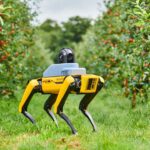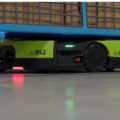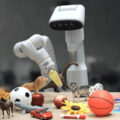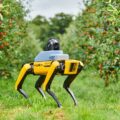One of the most interesting aspects of tracking food robotics startups in recent years is the various tasks companies are trying to automate, from prep to delivery. San Francisco Bay Area-based Bear isn’t the only company trying to put robots in front of the counter, but it has become one of the most prominent in recent years.
Bear has had some recent successes, including an attempt to bring its system to more restaurants in Japan. This momentum is due to backer SoftBank and the current labor shortage in the country. Japan has long had its eye on robots to keep its aging population active, and the pandemic has only exacerbated that need. In the United States, Bear has partnered with Chili’s, Compass Group, Denny’s, Marriott, and Pepsi.
The business model has clearly inspired a great deal of confidence in SoftBank, which recently focused even more on robotics and took its Series A to 2020. Now, a new investor, IMM, is stepping in to lead an $81 million Series B alongside existing investors like Cleveland Avenue. This latest round brings Bear’s total funding to about $117 million.
Bear is understandably cautious about full automation. The company has long positioned itself as a way for restaurants to supplement – not replace – service staff. No doubt that’s partly because the machines are more like moving tables than robotic servers carrying orders from point A to point B.
“When I opened my own restaurant years ago, I learned firsthand how difficult things can be,” founder and CEO John Ha said. “I figured there had to be a way to automate some of those repetitive tasks without losing what makes a restaurant great. That’s why we developed Servi. It’s a solution designed to improve the experience for customers, staff, and operators. While others are trying to completely automate work, we are trying to improve the future of work for the people in this industry who make it work every day.”
Bear’s Servi robot claims to have delivered 28 million meals over 335,000 total miles.






